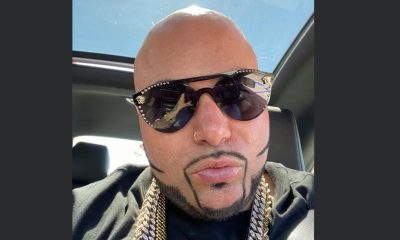Lists
The Most Common Airbnb Scams Worldwide

Airbnb, short for AirBed & Breakfast, a platform valued at US$113 billion in 2021, revolutionized the hospitality and real estate industries. It offers an online marketplace, allowing property owners or “hosts” to provide short and long-term renting without jumping through the usual hoops, including marketing, booking, guest vetting, and payment processing. Unfortunately, the convenience of booking accommodations based on pictures, videos, and some text, combined with people’s innate trust in welcoming, honest hosts, can be isecure. We listed the most frequently-run scams on Airbnb.
Contents
- 1 Scamming on Airbnb seemingly ramped up recently
- 2 1. Deceptive information
- 3 2. Fake listings
- 4 3. Double listing
- 5 4. Unreasonable or fabricated charges
- 6 5. Last-minute cancellation or bait and switch
- 7 6. Contact outside the platform and phishing
- 8 7. Fake reviews
- 9 Airbnb is responsible for most issues
- 10 The company is addressing the scams
Scamming on Airbnb seemingly ramped up recently
Airbnb has tried its best to eradicate malicious people, and avoid bad press and lawsuits for nearly two decades. Unfortunately, it’s still rife with scams, usually preying on those afraid or unable to speak up because they are in a tough spot while Airbnb investigates.
The problem has worsened in the last few years due to the COVID-19 pandemic and rising inflation. Airbnb had a drop in revenue to US$3.38 billion in 2020, but bounced back to $5.99 billion in 2021, and $8.4 billion the following year. The platform’s success and popularity, paired with a demand for housing and a terrifying outbreak, gave scammers a significant advantage. They could explain the inability to meet in person, and even seem trustworthy and responsible for handling everything remotely. People also overlooked flaws out of desperation, then failed to inform others or complain to Airbnb. After all, these scams usually stranded them in a different city or country, forcing them to book another listing or pay a hotel at short notice if they didn’t accept the deceitful option.
1. Deceptive information
Like dating profiles, property information can range from being touched up to look more attractive, to straight-up falsified and even illegal, particularly when renting rooms, basements, attics, or cellar spaces. Hosts can get off on technicalities or lead guests to assume it’s there, then use it to their defense. Some examples are the absence of fans, heaters, or ACs. They may also fail to mention that the property is on a busy road without double-glassed windows, lacks dedicated parking space, or is connected to the neighbor’s house.
Another popular trend among property owners is “house hacking,” i.e., splitting a home into a duplex. While it makes sense financially, they may not explain this, leading to discomfort with unusual (or lack of) room separations, or missing dedicated entrances.
Other examples include missing or vague amenities, such as Internet or cable TV, or what “a fully stocked kitchen” or “a bedroom with a view” means. Scamming can also cross the legal line if the space is lawfully and realistically unlivable, such as bedrooms, kitchens, or bathrooms that lack the necessary items. They may avoid mentioning that the leased room is a basement or attic without windows, quickly transformed to resemble a living area.
There’s also an issue with destinations or countries limiting short-term rentals to protect the local economy, and prevent the gentrification process. If enforced, the building security or law enforcement may bar access to a paying guest.
2. Fake listings
Romance scams are a rising problem, costing US citizens US$1.3 billion in 2022, according to the 2022 Internet Crime Report by IC3. Investment scams have reached US$3,3 billion, according to the same report. A perpetrator must undergo a strict authentication process on social media or dating profiles, but Airbnb makes things straightforward with an email, password, and basic information.
There's a huge Airbnb scam hiding on the streets of London. I uncovered a network of accounts that had been pumping out fake reviews and fake listings for years. The scam encompasses more than 200 listings, 2,100 reviews. And it's really weird https://t.co/e66icHzCqf
— James Temperton (@jtemperton) February 11, 2020
With a profile in place, creating a fake Airbnb listing is much easier and faster than a phony persona; the culprits can copy images and descriptions from a legitimate listing. Once they succeed, they can overbook the property; victims likely won’t know they’ve been tricked until the move-in day arrives. Moreover, it may take some days for Airbnb to react, sometimes only when users discover the legitimate listing and show proof.
The host may also use fake images with the correct property description, which is harder to pull off since people with an eye for details may spot inconsistencies. However, that allows them to quickly switch images when needed, giving them credibility when Airbnb inquires, while gaslighting the guests. Reverse image searches via TinEye or Google before booking is the best defense, since those algorithms would find duplicate photos if they exist.
However, some scammers are wise; they may alter the lighting or contrast, or photoshop a different background, such as a scenic view or amenities, for example, a lamp, to make the photos more alluring and simultaneously unique.
3. Double listing
With how easy duplicating information on Airbnb is, and how little the platform does to verify whether two properties are identical, it’s no wonder that hosts can list their property two or more times. They can make it less noticeable by obscuring information, keeping things vague, or taking pictures from different angles for each listing.
That lets them test the waters, seeing how much people are willing to pay. They can then accept the highest bidder’s offer, or even cancel all others at the last minute if they want to extract the maximum. Airbnb tries hard to prevent this by letting hosts cancel three times a year without specifying a reason, but experienced scammers will surely find a justification for cancelations beyond those, such as ‘that the place is currently uninhabitable.’ That makes them look noble in front of Airbnb, and Customer Support can let them off the hook for reimbursing the guest.
4. Unreasonable or fabricated charges
Common sense dictates that guests should take pictures of the state of the property the moment they arrive. With that evidence, they should notify the host of any damages they notice, giving them credibility with Airbnb support in case of a dispute. Moreover, besides evading responsibility for the mess the previous guests made, the host, who perhaps never noticed the damage, could reward them somehow. However, move-in days are usually stressful, and people don’t expect to get scammed. Plus, many guests are unaware that they must report any damage or decide to cancel the stay within 24 hours. Otherwise, they are on the hook for paying, and at the host’s mercy for a potential partial refund; Airbnb’s policy lets them avoid responsibility.
Some hosts also abuse the extra charges, asking for money for late check-in, amenities that should be standard or complimentary, getting a spare key, noise compensation, and so forth. Some guests were permitted to use the kitchen, but were surprised when the host demanded that they rent utensils, mugs, and plates in cash. Other hosts charge an ‘optional’ cleaning fee, knowing that no cleaning facilities are nearby.
Guests have also reported getting guest behavior books, following the instructions to a tee, and still being accused of doing things that supposedly cost the owner a lot. For example, the owner may allege that the guest lost the key and caused a profit loss, even though they left it as ordered. That lets the host charge them for hiring a locksmith, breaking in (and thus damaging the door), and re-keying the main entrance. Those events could be actual but cost them minutes, or are wholly fake, and in both cases, purportedly cost them days of canceled reservations that the guest should pay for.
Damage reimbursement has a legitimate use and is there to protect the hosts. Extra charges are also ok when they are truly optional. However, hosts may know that something is close to breaking, but they don’t want to pay for repairs or a replacement out of pocket, so the next guest is blamed.
5. Last-minute cancellation or bait and switch
Guests often disregard safety because Airbnb offers refunds for cancellations, but they may not know that only applies when a host cancels. If guests cancel, they may be liable for a cancellation fee, a significant percentage of the total reservation, or the entire security deposit. Therefore, hosts may intentionally overbook their property, contact guests with a severe problem, such as plumbing or chemical issue, and ask them to cancel. Those unaware of the conditions may give the host free money without stepping on the property. Those who don’t may still be tricked with a ‘bait and switch scam’ when the hosts offer them a stay in another property instead of canceling.
That makes them seem generous and accommodating when, in reality, they are getting more money for an inferior property they own, which may interest no one. Baiting and switching is also a common in-person tactic, especially for international travelers. After a traveler reaches the destination and sees that the property isn’t as described, or even bogus, the host will make the same offer, only this time, additional pressure exists to accept an unwanted alternative property. Otherwise, guests would have to pay a cancelation fee because a deceitful host wouldn’t cancel, yet still pay for a hotel or another Airbnb on short notice.
6. Contact outside the platform and phishing
Guests should keep their conversations with an Airbnb host on the platform and always pay via the platform to be protected by escrow and other security measures. If they ask for a bank or wire transfer or the use of payment-related mobile apps or cryptocurrency, it’s almost always a scam. If users comply, the host may take their money and run, charge them twice, or refuse to acknowledge that they booked a stay once they arrive. In all cases, Airbnb cannot intervene, because they don’t have those transactions on record.
Some hosts also use their listings to steal personal information through social engineering or phishing via phony Airbnb domains (such as email addresses), Airbnb clone websites, or mobile apps to which guests can log in. They can then hack user accounts, letting them leave positive reviews, book fake visits with the user’s money, empty their bank account, or charge their credit card. Identity theft is particularly damaging for long-term hosts, who can have their businesses shut down and accounts banned by Airbnb. In summary, a verified Airbnb employee may ask for an ID to be uploaded safely using the official website, and an encrypted page with defined information retention rules. However, guests should never send images to another guest or anyone off the platform pretending to be connected to Airbnb.
7. Fake reviews
Hosts are incentivized to have a near five-star rating and keep a continuous Superhost status with many requirements, including a 4.8-star overall rating. That may force them to trick guests or flat-out ask for a five-star rating from guests, even if it involves threats and dishonesty.
They may also use bots, hacked accounts, or mass-create accounts to praise their property, which is unethical and illegal. Although new properties are the exception, guests should always examine the authenticity of reviews. If possible, they should choose properties whose rating results from hundreds of reviews over the years.
Airbnb is responsible for most issues
Airbnb cannot eradicate scamming, but could discourage or prevent most scams if it invested money into technology, employees, and proper user and listing authentication. People trust the platform to protect their money and guarantee their safety; their refund policy is unstable, and security measures, such as escrow, could be better. People also complain that they are paying up to 20% more than the host is actually charging, forcing both sides to do their deals off the platform, but risking their accounts and safety.
https://www.instagram.com/p/Crqk5TNAcEo/
Additionally, with the billions they are making, the company could invest in emergency interventions or property inspectors. They should stop sending standardized or formulaic responses, and create or license a technology that makes listing duplication impossible, and bans hosts or guests for good.
The company is addressing the scams
Airbnb was criticized for poor identity checks, a slow customer support system, low security, and unfair refunds, among other things. Luckily, the Airbnb CEO and co-founder, Brian Chesky, knows that. He vowed to improve the situation, claiming that Airbnb would verify all (at that time) seven million listings by December 2020. Simultaneously, he announced a scam prevention system, the Airbnb Guest Guarantee, which promises to refund 100% of the payment, or re-book guests to a similar or better property if they are unhappy with the accuracy of a verified listing with a vetted host.
So, you are now forewarned – don’t fall for scams, and if you do, ensure that Airbnb are informed as quickly as possible….and, KNOW YOUR RIGHTS1
Lists
What is Ricky Van Shelton up to today? What happened to him?

Ricky Van Shelton is a retired country music superstar, who spent three decades in the industry. He found early recognition and was successful and beloved by the audience only two years after he started working on his music. During his lengthy career, Ricky released nine studio albums, four compilation albums, and two holiday albums. His work was praiseworthy; 20 singles landed on the Billboard Hot Country Songs charts, 10 charted in the number one spot, and seven were in the top 10. Unfortunately, Ricky Van Shelton stopped recording around 2000, and announced his retirement in 2006. Here’s what happened and what he did afterwards.
Contents
- 1 Ricky didn’t cater to the mainstream sound
- 2 A demo launched his career
- 3 He persevered despite the genre’s decline
- 4 Ricky had trouble with alcohol in 1992
- 5 He voiced his displeasure
- 6 He recovered and adjusted his career goals
- 7 Ricky retired a decade and a half ago
- 8 He never returned to the scene
- 9 Ricky lives on his terms
- 10 He isn’t keeping his fans in the loop
Ricky didn’t cater to the mainstream sound
Ricky Van Shelton was a renowned recording and performing country music artist between 1986 and 1992 and could have kept going. His albums were certified platinum and gold by the Recording Industry Association of America (RIAA), and he had thousands of fans awaiting new releases. However, his displeasure with the new wave of country artists in the early 1990s, which would force him to alter his sound, put him off.
Ricky wanted to do what he loved, and didn’t regard his public fall from grace that way. He was always open about being lucky to find fame in his 30s, and his readiness to leave the industry when it no longer aligned with his goals. Thus, Ricky started a recording label, had a minor studio album release, then signed with another well-known label before he got tired of performing and touring. Ricky had earned enough to live off his past work and so dedicated his life to his hobbies, household duties, and marriage.
A demo launched his career
Ricky’s father was musically inclined, and son began singing gospel and pop music as a child. However, his love for country music developed in his teens, and he promptly joined his brother’s band and began performing wherever he could. Although he worked in area clubs, his name needed to be more recognizable to earn a living, forcing him to work various other jobs.
He finally got lucky after he moved to Nashville, Tennessee in 1984, which many consider the Mecca of country music, with his then-girlfriend, now wife, Bettye Witt. After two years of performing, newspaper columnist Jerry Thompson heard one of his demo tracks, and facilitated an audition with one of the oldest companies in the sound business, Columbia Records.
Jerry started managing his career after Columbia Records signed Ricky to CBS Records International, a branch of the main label that released recordings outside North America. His first album, “Wild-Eyed Dream,” released in 1987, was an instant success, and the singles after that charted better and better. His second album, “Loving Proof,” released in 1988, reached first place on the Billboard Council albums list, and had three top-charting singles.
He persevered despite the genre’s decline
Ricky Van Shelton enjoyed praise and high chart positions until 1992. That wasn’t his fault entirely. His albums, “RVS III” from 1990 and “Backroads” from 1991, still charted well. However, the popularity of his country music sub-genre, neo-traditionalism, was waning. Therefore, his colleagues such as Dwight Yoakam, George Strait, Garth Brooks, and Randy Travis also faced troubles.
Grand Ole Opry, which he joined in 1988, described the change as the appearance of ‘a group of hat acts,’ cowboys who moved away from the traditional country genre to release music with pop, gospel, and rock influences. Moreover, female country stars rose in prominence; Shania Twain, Martina McBride and Faith Hill figuratively stole a portion of the audience.
Ricky had trouble with alcohol in 1992
As if the industry decline wasn’t affecting his career enough, Ricky finally confessed that he’d struggled with alcoholism for a while and wanted to become sober. His fans knew that he was serious and that it could mean giving up his career if sobriety was more important. After all, Ricky told Detroit Free Press in 1990, ‘I’ve always had faith in myself… With these three albums, it’s been wonderful. However, if it ends tomorrow, I would just walk away with a smile.’
His admission brought attention to his life away from the spotlight – people around him revealed that alcohol had taken full control of his life. Ricky staved off his alcoholism on stage to avoid ruining his career but struggled away from the spotlight. Consequently, his drinking destroyed his relationship with family and friends, and his eight-year-long marriage was in danger. His parents didn’t want to meddle in his affairs, but ended every conversation with, ‘We’re praying for you, son!’
That forced Ricky to self-reflect, and recalled how happy his childhood was. Since he sang gospel in church growing up, and his type of country music was losing popularity, he switched things up and in 1992 released an album of his favorite gospel songs, “Don’t Overlook Salvation,”
Ricky Van Shelton became a member of the Opry 33 years ago today!
What's your favorite song of his? pic.twitter.com/MS3PwjkiUN
— Grand Ole Opry (@opry) June 10, 2021
He voiced his displeasure
Ricky’s departure from mainstream music wasn’t so hasty. Some fans recalled his interview with Morning Call in November 1999, when Ricky revealed that his dissatisfaction with the music industry began in 1992, when he performed at the Country Music Association’s anniversary event. He stated that the songs he was supposed to sing weren’t in his key, however, the event’s director told him and other participants that it didn’t matter what they sounded like, only that the performances looked good on camera. Ricky was insulted, saying he would leave instead of sounding bad because of someone else’s decisions.
Shortly after security escorted him from the event for refusing to co-operate, Ricky also started disliking his radio performances. He stated that the new wave would ruin the country because the artists sounded alike. What hurt him the most was that the single, “Where Was I,” from his platinum-certified 1991 studio album, “Backroads,” vanished from all charts after his statements, despite being ‘hot as a firecracker,’ according to him.
He recovered and adjusted his career goals
Although he never clarified whether he beat his alcohol addiction, Ricky noted that his career rapidly deteriorated because he didn’t want to conform to current trends. Thus, Ricky left Columbia Records after releasing two more studio albums, “A Bridge I Didn’t Burn” in 1993, and “Love and Honor” in 1994. However, his former label released several Greatest Hits collections afterwards, including “Super Hits” in 1995, “Super Hits Vol. 2” in 1996, and “16 Biggest Hits” in 1999.
Ricky decided to reduce his touring and recording commitments in 1997, and launched the recording label, RVS Records. He financed his next album, “Making Plans,” and released it solely in Wal-Mart stores the following year.
His eighth studio album received some praise, but lacked the backing of a large record label. Plus, its release made it unable to chart, and he didn’t release any singles. As a last-ditch effort to revive his career, Ricky signed with the Canadian record label Audium before releasing his last studio album, “Fried Green Tomatoes,” in May 2000. Although it had a notable single, “The Decision,” it didn’t achieve noteworthy worldwide success.
Ricky retired a decade and a half ago
Ricky continued touring and performing his best-known songs for six years through 2006, however, everyone noticed his reluctance to live a country superstar life. He was never really into fans camping in his trailer or throwing him objects such as teddy bears and lingerie, some of which had female fans’ numbers and names. Additionally, Ricky never lived a fast-paced rockstar life, which included sleeping around, taking drugs, or partying late into the night. Most importantly, his fans noticed that he barely gave interviews after 2000, which suggested that the end was near.
Most of his fans were unsurprised to read Ricky’s letter, dated 3 May 2006, informing everyone that he would take a break. He asked the label to release him from performing for the rest of the year, saying that he wanted to spend more time with his family. However, when the hiatus stretched into 2007, and he didn’t return the year after, it was clear that Ricky had decided to retire, at least until further notice.
He never returned to the scene
Ricky never clarified why he retired, as many assumed that he loved country music and performing. However, he never wanted the headache, busy lifestyle, and constant competition that being a recording artist demands. Many fans need to remember that Ricky struggled to find recognition until he was in his mid-30s and only enjoyed several years of unbelievable success before his fame took a toll.
Following several decently-performing albums after 1992, Ricky presumably recognized that he would never recapture the stardom that he once had. Thus, he potentially decided that the sacrifices of being away from family and friends weren’t worth the moderate success he could maintain.
Although he refused to speak publicly about his reasons or potential plans for his return, his website, www.rickyvanshelton.com, provided some information – Ricky used his retirement years to work on his 150-acre farm, located along the Cumberland River, east of Nashville. He was also interested in collecting antiques, including expanding his classic car collection, gardening, and flying his airplane.
https://www.instagram.com/p/CR6sYBmhlQA/
Ricky lives on his terms
After becoming an instant star in the late 1980s, Ricky Van Shelton was a sensation for roughly eight years. At the height of his fame, he decided not to blend in with the so-called New Country wave, explaining that he refused to look or sound like other country stars. Ricky’s unwillingness to align with the record label’s plans and standards led him to leave fame behind, and make independent decisions.
True fans appreciated the post-1992 releases. After Ricky launched his label, many fans rushed to Wal-Mart to hear what he had to offer, and still showed up at his shows until 2006. His passion for performing wilted, and he couldn’t justify the financial, time, and energy investments. Hence, Ricky quit media life and now enjoys privacy, having been one of the best-recognized male country music vocalists.
He isn’t keeping his fans in the loop
Although fans can read or hear some old interviews, only bits of information are available. Ricky’s official website, created in June 1997, is inaccessible despite its renewal in 2018. Similarly, his official Facebook page under the handle @rickyvanshelton.music, has been deleted. Only his fans keep the legacy alive online. A Facebook fan group, Bring Back Ricky van Shelton, mentions occasional tidbits that surface online. For example, they keep track of his wife’s YouTube channel, @@BettyeShelton-RickyVanShelton, and noticed that she’d uploaded an unreleased song that Ricky wrote, “I Know About You and Me,” on 14 May 2022. She recorded it with her iPhone’s Voice Memo app; fewer than five people had heard it before that day.
That shows that Ricky is still happily married to the woman he began dating in 1979, and tied the knot with seven years later. Bettye is equally satisfied with her life; she released a 25-second video of Ricky’s contagious laughter in August 2020, a video of them celebrating Easter morning that year, and landscaping their yard. She also revealed that her husband still loves Randy Travis. Bettye posted a video of Ricky saluting and admiring Randy in the home studio in 2017 for being ‘distinctive and a true star.’ Her uploads indirectly disproved fake news on YouTube in 2022, about Ricky ‘being in critical condition and begging for help’.
Lists
What happened to Miranda Lambert? Why did she quit music?

Fans are still reeling after hearing that Miranda Lambert, a well-known country music star, is quitting her music career after two decades in the industry. She announced her decision in March 2023, which was surprising because she released her last studio album almost exactly a year before. Therefore, nothing indicated that Miranda would stop doing what she (apparently) loved, including touring and performing at sold-out venues. Here’s why she decided to end her career, and what she plans to do instead.
Contents
- 1 She was extremely successful
- 2 Miranda loved music from a young age
- 3 A talent competition brought her fame
- 4 Blake Shelton skyrocketed her popularity
- 5 2017 was one of her best years
- 6 Something changed during the pandemic
- 7 She recently tweaked her music
- 8 She had vocal issues
- 9 Miranda may expand her family
- 10 Miranda wants to help animals
- 11 She is working on her brand
- 12 Miranda didn’t quit music
She was extremely successful
Many entertainers, actors, musicians, and singers retire from their profession once the opportunities dry up, and new faces take over the industry or even the genre. Miranda’s case is different; she had moderate to outstanding success for 20 years and has won three Grammy Awards. Additionally, her most recent studio album received universal critical acclaim with a score of 83 out of 10 on Metacritic and a Country Music Association Award for Album of the Year nomination.
Moreover, she had five high-charting songs and 10 number-one singles in her career. Thus, her decision to leave Sony Music Nashville on 15 March 2023 didn’t make sense. However, Miranda’s priorities recently shifted behind the scenes, and she wanted more time for her family, personal brand, and entrepreneurship.
Miranda loved music from a young age
Miranda Leigh Lambert, born on 10 November 1983 in Longview, Texas, USA, and raised in the town of Lindal about 50 miles (80kms) away. Her father inspired her love for music when he played his guitar, and her music taste eventually ranged from mainstream to outlaw country from the 1970s and 1980s.
She decided to showcase her talent at 16, started writing music, playing guitar, and performing at talent shows and honky-tonk bars. Moreover, her music had a distinct theme. Her parents, Rick and Bev, who worked as private investigators, lost all their money in the oil crisis in the 1980s and 1990s. They became ministers for a Methodist church and brought endangered or abused women home for protection, and their stories around the kitchen table inspired Miranda’s lyrics. After she realized her potential and received support from the audience and people close to her, Miranda ensured that she would matriculate from high school early. That allowed her to release a self-titled and produced “Miranda Lambert” album in 2001.
A talent competition brought her fame
Her first album received little attention, hence Miranda decided to front a larger audience and talent scouts, by competing in the TV talent competition “Nashville Star” two years after her album’s release. She failed to secure the top prize, but an Epic Nashville executive and on-air judge, Tracy Gershon, noticed her, signed her to the label in 2004, and Miranda began recording her next album.
On 15 March 2005, she released her debut studio album, “Kerosine.” Four of its songs entered the top 40 of the Billboard Country Singles chart, and the title track reached 15th spot. It was a perfect mix of outlaw country with what critics described as ‘a love gone wrong theme,’ folk-pop influences of classic country, honky-tonk, and country rock. Her next album, “Crazy Ex-Girlfriend,” released in 2007, was even snappier and louder, because she wrote nearly all 11 tracks, and what sparked interest was Miranda’s authenticity; journalists revealed that she wrote those songs, including her highest charting single, “Gunpowder & Lead,” while having a concealed carry permit, and taking her handgun wherever she went.
Blake Shelton skyrocketed her popularity
Miranda’s popularity increased considerably after she released her 2009 album, “Revolution,” which contained her first number-one single on the Billboard Country chart, entitled “The House That Built Me”, and received a Grammy Award for Best Female Country Vocal Performance for that song in February 2011.
Despite her solo success, Miranda’s romantic life put her and her work in front of a massive audience – she began dating a country singer Blake Shelton in 2006, but most people only found that out when he co-wrote some songs on her 2009 album, or even later when they married in 2011. Additionally, Miranda and her girl music group, “The Pistol Annies,” were heard on Blake’s 2012 Christmas album, “Cheers, It’s Christmas,” and his well-known 2013 single, “Boys’ Round Here,” which eventually reached the top position on Billboard’s US Country Airplay chart. It was ultimately a five-times platinum-certified single in the US by the Recording Industry Association of America (RIAA).
2017 was one of her best years
Miranda’s prominence grew despite her broken heart; she divorced Blake in July 2015, and within the year he moved on with his now wife, singer Gwen Stefani. Her two albums, “Platinum,” released in 2014, and “The Weight of These Wings” from 2016, were well received. Moreover, she broke some records by winning her eighth successive Academy of Country Music Award for Female Vocalist of the Year, and her seventh CMA (Country Music Association) award in the same category.
Something changed during the pandemic
After announcing her seventh studio album, “Wildcard,” and releasing it in November 2019, Miranda wanted to go on a 27-city tour across North America. However, the outbreak of the COVID-19 pandemic hindered some planned performances, and the tour concluded in Canada in May 2020. A slight change was evident on the album; for instance, it was her first time working with another producer, and Jay Joyce helped make the album what it was. Also, it was her first country rock album in a while; the fifth studio album was marketed as a classic country, and the sixth was categorized as alternative country.
Additionally, Miranda would spend much more time at home. Her loyal fans know that Miranda bought a 400-acre farm near Primm Springs, Tennessee, an hour’s drive from Nashville, for $3,4 million in 2016. Moreover, she had a new man in her life; on 26 January 2019, she married Brendan McLoughlin, a New York Police Department officer. Many don’t know that Brendan had just had a son with his ex-girlfriend Kaihla Rettinger, when hey met Miranda in 2018. Therefore, Miranda, who said in 2015 that she wasn’t ready to raise kids, became a devoted stepmom to Landon from the get-go, and loved every moment. She even purchased a home in New York City to see him more often, since the newborn lived with Kaihla full-time.
Inspiration behind @idyllwind: Strength. Kindness. Sensitivity. Beauty. Fire. Power. Happiness.
Follow @Idyllwind to join the tribe. pic.twitter.com/HIf0C9u1je
— Miranda Lambert (@mirandalambert) February 27, 2019
She recently tweaked her music
Although “Wildcard” won the Grammy for Best Country Album in 2021, Miranda was already set on tweaking her sound. Her collaborative album that year, “The Marfa Tapes,” produced with Jon Randall and Jack Ingram, had a low fidelity, alternative music vibe. Moreover, she collaborated with Elle King, a country, blues and rock singer, on the “Drunk (And I Don’t Wanna Go Home)” single, and released a song to support the LGBTQ community, entitled “Y’all Means All”, on 30 December 2021.
She also released a folk, world, country and Christmas holiday album, “Hell of a Holiday,” two months before, in October, with her girl group, “The Pistol Annies.”
With that in mind, her last studio album under Sony Music Group, “Palomino,” released on 29 April 2022, didn’t fit the pattern; it demonstrated her return to her roots, and had a typical outlaw/cowboy country sound. However, many people need to realize that Miranda wrote all the songs in 2020 while on her Tennessee ranch and only re-recorded some for the album. Thus, the project was likely halfway ready before she started getting cold feet about being signed to a mainstream record label.
She had vocal issues
Some fans rushed to a conclusion on 31 March 2023, when Miranda canceled her Las Vegas concert at the Bakkt Theater, only two weeks after she announced becoming a free agent as a recording artist. She stated that she’d been under doctor’s care the entire day before, but that her physician ordered two days of vocal rest. Thus, while most followers showed their support, some suspected that Miranda had undisclosed vocal issues that forced her to part ways with Sony Music Group. Luckily, Miranda proved that it was a temporary setback, and performed without a hitch a few days later.
Miranda may expand her family
Miranda and her husband Brendan, have been open about their love for each other and their animals over the years. Additionally, after she gushed about her love for Brendan’s son, an insider revealed to Us Weekly in February 2022 that the couple started trying to conceive after their third wedding anniversary the month before. According to the source, Miranda felt emotionally ready, had enough practice with Landon, and Brendan always wanted to have biological children with her.
Additionally, the journalist revealed that she was building a house to accommodate their family in or around Nashville, which may or may not be on her 400-acre property. Therefore, Miranda likely wanted to pause her relentless pursuit of being a country music star, spend time with her husband, and work on growing their family.
Miranda wants to help animals
Judging by the interviews after March 2023, Miranda is stepping away from releasing albums to make time for her other passions. She has the charity MuttNation Foundation, which she started with her mother in 2009, with its goal to raise money for rescuing animals, animal shelters, and the high costs of veterinarian bills. She has an animal shelter on a ranch in Blake Shelton’s hometown, Tishomingo, Oklahoma, and has been vocal about the cause. Miranda also partnered with Tractor Supply Company and Greater Good Charities to sell pet products or provide pet meals for free. Most recently, on 20 April 2023, MuttNation and Tractor Supply Company announced that they had gathered almost $300,000 in donations from portions of pet product purchases.
She is working on her brand
Miranda has been the face of many products, including Cotton Inc.’s clothes, DSW’s line of shoes and boots, and Ram trucks manufactured by Chrysler, one of which, a 1500 Laramie Longhorn, she sold at an auction and donated the proceeds to MuttNation Foundation. Plus, she owns The Pink Pistol boutique in Lindale, has created a wine brand with Red 55 Winery, launched the clothing line Idyllwind, and has a line of home necessities and decorations, Wanda June Home, exclusively sold at Walmart.
Also, Miranda has always been a food lover, but her career kept her from seeking noteworthy success in the industry. That changed on 25 May 2021, when she opened a four-story, 17,400 sqft or 1,615m2 bar, entitled Casa Rosa or “pink house” in Spanish. Then, two years later, she published a cookbook entitled “Y’all Eat Yet?: Welcome to the Pretty B*tchin’ Kitchen” on 25 April 2023 with her co-author, Holly Gleason. It features her favorite recipes local to Texas and her mother and grandmother, who taught her to cook. She promptly embarked on a press tour to promote its release, and her break from music allowed her to do so.
Miranda didn’t quit music
Miranda has been at the top of her game since she signed a recording deal with Sony at age 19. After 20 years of consistent effort at concerts and during long days on tour and in the studio, which resulted in nine universally praised studio albums, she decided to take some pressure off. She’s now dedicated to her family, primarily her parents, husband Brendan, and stepson Landon, who turned 4 in 2023. Moreover, she’s following her passions in the food industry, and developing a personal brand by launching and advertising products from established brands.
https://www.instagram.com/p/Cs4AUUcuNMi/
However, her fans can be sure that Miranda will not quit music. She said in April 2023, ‘I am, for the first time in 20 years, a free agent. I don’t have a label and feel great about it.’ She added that she ‘feels inspired to be able to see the options out there because it’s a different landscape compared to signing her first record deal.’ She wants to be a part of a new wave of whatever is going on in her genre. Fans must remember that she launched a record label, Vanner Records, in 2016.
Moreover, Miranda announced a new song with Dierks Bentley on 5 May 2023, available on the soundtrack for the CBS TV show “Fire Country.” Most recently, she co-wrote some of 13 tracks on Jelly Rolls’ “Whitsitt Chapel” country album, scheduled for release on 2 June 2023.
Lists
How is Rent-A-Grandma doing after ‘Shark Tank?’

“Shark Tank” follows four to five investors, some of whom return season after season, looking for the right business to support financially. Unless the business has a ground-breaking idea, they rarely help it get off the ground. In most cases, the investors require a good track record; thus, their money allows the business owner to stay afloat, fulfill an existing order, expand to a new area, or finance research & development (R&D). Contestants have a few minutes to present their company and convince them without being dishonest. An on-screen handshake is not legally binding, and many deals fall through behind the scenes once lawyers, accountants, and sometimes Federal Trade Commission (FTC) get involved.
Revolutionary businesses are rare and usually reserved for Silicon Valley. Thus, most of the show’s success stories involved passionate entrepreneurs who improved an established product or service. Rent-A-Grandma falls into that category; Todd Colby Pliss, the founder, realized that a specific demographic, seniors, would be an ideal service provider for his business. He wanted to hire grandmothers as inexpensive caretakers, a role that was usually given to teenagers, students, neighbors, or temporary migrants. Unfortunately, when he presented the business opportunity, the “sharks” refused to bite, and he left without an investment.
However, his business didn’t suffer; the show’s popularity got people invested after the episode aired. Thus, Todd found new clients and, judging by his website, has a lot more than the initial 50 grandmothers in his employ. Here’s what happened to Rent-A-Grandma during and after “Shark Tank.”
Contents
The initial disinterest didn’t dissuade Todd
Todd didn’t get any money from the “Shark Tank” hosts when he debuted in the eighth episode of the third season. However, they praised his business acumen and celebrated his desire to involve an under-appreciated part of the population. After all, the community often neglects senior citizens, and Todd wanted to hire them to care for babies, children, and young teens. He felt that grandmothers would be better at nurturing without charging exorbitant fees, and that everyone involved would benefit. That would get him government support, too; some countries consider older people redundant if they cannot work.
Importantly, Rent-A-Grandma didn’t have to spend money on training; grandmothers could earn money from the job that they’ve done or still do for their loved ones. Additionally, the on-call and contractor nature of Todd’s business model allowed them to be available only when they felt capable. That benefited grandmothers more than financially; they found companionship, made friends on the job, and could take breaks.
Unfortunately, while they loved the business, it wasn’t far enough along, so the investors couldn’t make enough money in a reasonable period. Still, Todd didn’t lose heart, and restructured Rent-A-Grandma after 2012; the company is active and has expanded to include the other half of the older population, grandfathers.
The investors found his business model unsuitable
Todd gave an excellent presentation and even brought a grandmother to demonstrate the concept. He stated that he got the idea during his tutoring job, when he noticed a shortage of reliable childcare providers. His clients’ parents consistently complained about having to hire untrustworthy people unless they wanted to pay top dollar. While neighbors’ children or students were cheaper, they were often unavailable, inexperienced, overly accommodating, or distracted while on the clock.
In contrast, grandmothers had decades of parenting experience, lots of free time, and reasonable compensation demands. Todd drove the point home, saying, ‘Why hire a teenage nanny when you can have a grandma?’ Sadly, the “sharks” didn’t see enough current value to pay $150,000 for 20% of Rent-A-Grandma. Their biggest worry was Todd’s plan to focus on franchising, i.e., allowing others to start a business under Rent-A-Grandma’s name and business model for a fee. While that would let Todd’s company expand across the US, it could also weaken the profits.
Even worse, Robert Herjavec inquired about the grandmothers’ hourly wages, which were between $14 and $20. That was still serious cash since the minimum wage in Los Angeles, California, was $8 an hour between 2008 and 2014. However, franchising the business meant that the “sharks” would wait longer for a return on their money and start raking in cash, without hundreds of thousands of clients and contractors. Most importantly, owning one-fifth or one-fourth of the company meant that they wouldn’t have a decision-making percentage in the business. Therefore, the investors would, at best, be on the board of directors, and without veto power against what they considered poor decisions.
Kevin considered investing
Some of this TV show’s investors are willing to part with their money if they receive a nearly fail-safe deal. Kevin O’Leary and Mark Cuban saw potential in the business and asked the most questions after Robert, Barbara Corcoran, and Daymond John pulled out of investing. Mark eventually dropped out, wanting to avoid his name being attached to a business focused on seniors. Kevin was inquiring about the business model and the relatively low sales of only $25,000 the previous year. He liked that grandmothers sign a 90-day deal, reducing the inconvenience when one gets sick or, unfortunately, passes away.
After hearing the response, Kevin seemed to mull it over and was coming up with a “Mr. Wonderful deal” that he gives to desperate business owners. That usually indicated that he would want a 50%, if not 51%, i.e., the controlling share of the company, frequently without paying more than the asking price. He is also known to give money loans with incredibly high-interest rates, or request a percentage of the royalties to accelerate his money return. Unfortunately, Kevin couldn’t come up with a proposal that he was comfortable with, and Todd left the “Shark Tank” studio without money in his pocket.
Todd shifted his business priorities
Todd listened to the advice and rarely mentioned franchising after 2012. Instead, he doubled down on his original business model with a twist, and to signify this change, he renamed his business from Rent-A-Grandma to Rent A Grandma. His approach changed because he realized that he was thinking too small. Instead of looking for grandmothers in the Los Angeles area, then signing them up for a three-month-long contract, Todd was inspired by websites such as Craigslist.com and Angie’s List, now known as Angi. Therefore, he hired a web developer, Nicholas “Nick” Howe, at nicholashowe.com, to build him a WordPress website at www.rentagrandma.com.
Using a website solved two primary problems. First, Todd could now refer grandmothers to his website and get them to sign up for a carer account instead of handling their details himself. Second, his content management system (CMS) made it easy for grandmothers to see client requests and bid on jobs. In contrast, clients could see and book grandmother’s profiles online without contacting Todd. Most importantly, the advanced search by country and postal code meant that people across the globe could use his service.
Some previous investigations into the business suggest that he got rid of charging grandmothers 15% of every job in favor of a one-time $25 flat service fee. That was an excellent solution for a global business; taking a cut from local transactions would be a tax-filing nightmare. Handling conversion rates and payment processing would be a challenge, too. Additionally, if things were too complicated or expensive, people outside the country could report that their search was unsuccessful, then pay a grandmother outside the platform.
Rent A Grandma expanded its focus
After participating in “Shark Tank,” Todd realized his caregiving idea was too niche. Therefore, he increased the area of expertise; people could hire a tutor, a nanny, a chef, or a pet sitter. Moreover, they may require a grandmother for companionship, as a personal assistant, party attendee, or caregiver to a fellow elder or a special needs child.
Similarly, Todd decided to bring attention to grandmothers’ skills and patience. Therefore, he started a Merchandise page, where the business sells t-shirts with their logo and those with a “Grandmas Matter!” print. Moreover, he sourced products such as chocolate chip cookies, brownies, and oatmeal raisin cookies. That helped grandmas whose baking skills exceeded their caregiving ability to make some money. Additionally, some people never tasted their grandma’s cuisine, allowing them to fulfill their lifelong dream.
Happy 4th to all! pic.twitter.com/sMZMMDAuiL
— The Grandma (@rentagrandmacom) July 4, 2019
People can request grandmothers on mobile devices
While the website is mobile-friendly, Rent A Grandma took things further by releasing an eponymous iOS application on the Apple App Store distribution platform. However, the application is unavailable in 2023, likely because it did not receive an iOS 16 update or the code had problems. Additionally, Todd created two social media profiles, on Twitter and Facebook, under the handle @rentagrandmacom, and still uses a business e-mail, [email protected], for non-tech-savvy users, including grandmothers.
Rent A Grandma has a sister company
Todd realized that other adjustments would allow him to extend his reach without developing brand-new technology or reinventing the wheel. Therefore, he started a second company, Rent a Grandpa, with an accompanying website, rentagrandpa.com. Although it has the same tagline, with ‘grandpa’ replacing ‘grandma,’ it offers activities that men do more often. Therefore, clients can request various handyman services such as dealing with furniture, electricity, painting, and lawn mowing. Moreover, they can hire grandfathers who are automotive specialists, which is useful whenever a mechanic’s help is unnecessary or pricey.
Rent a Grandpa, a new company with a rising list of services, lacks pages such as FAQ (Frequently Asked Questions), Merchandise, and About Us. However, it added a star-based rating system for registered grandpas and did not charge grandfathers fees. However, it likely takes a percentage from their wages, as Rent-a-Grandma did, and is thus limited to US territory.
Todd did not need the “sharks”
While Todd thought pumping cash into his business early on would solve all his problems, the advice he received on set was valid. He needed more time to iron out all the kinks in his business plan, primarily restricting the company to the US and not using a website and a mobile app to streamline hiring, paying, and reviewing grandmothers.
Todd accepted criticism and examined his competitors, then applied excellent ideas, such as making Rent a Grandma available globally, on mobile and desktop devices, and via the website, social media, and e-mail. After boosting the number of services, including letting grandmothers sell baked goods, he included grandfathers through his second company, Rent a Grandpa. That showed his business acumen; hence both companies are growing. Unfortunately, Todd may be stretched too thin; both websites need an SSL certificate, which boosts their security and instills trust, and the promoted Phone application is inaccessible. While those oversights hurt his brand’s reputation, they are relatively inexpensive and easy to fix, which will no doubt happen soon!
-

 Instagram Stars3 months ago
Instagram Stars3 months agoKatelyn Runck – Measurements, Height, Age. Plastic Surgery?
-

 Twitch Stars1 month ago
Twitch Stars1 month agoThe Sphere Hunter’s Biography: Trans? Age, Face, Real Name
-

 Instagram Stars1 month ago
Instagram Stars1 month agoThe naked truth of Claire Abbott’s disappearance: Where is she now?
-

 Actors6 months ago
Actors6 months agoWho is Dylan Llewellyn? Age, Height, Gay? – Biography
-

 Youtube Stars4 months ago
Youtube Stars4 months agoHow Rich is Judge Frank Caprio? Net Worth, Salary, Family, Bio
-

 Web Stars2 days ago
Web Stars2 days agoWho actually is Hard Rock Nick? Net Worth, Real Name – Wiki
-

 Instagram Stars2 months ago
Instagram Stars2 months agoKara Del Toro – Age, Height, Measurements, Husband, Wiki
-

 Businesspersons1 month ago
Businesspersons1 month agoThe Untold Truth Of Brandi Love’s Husband – Chris Potoski








































